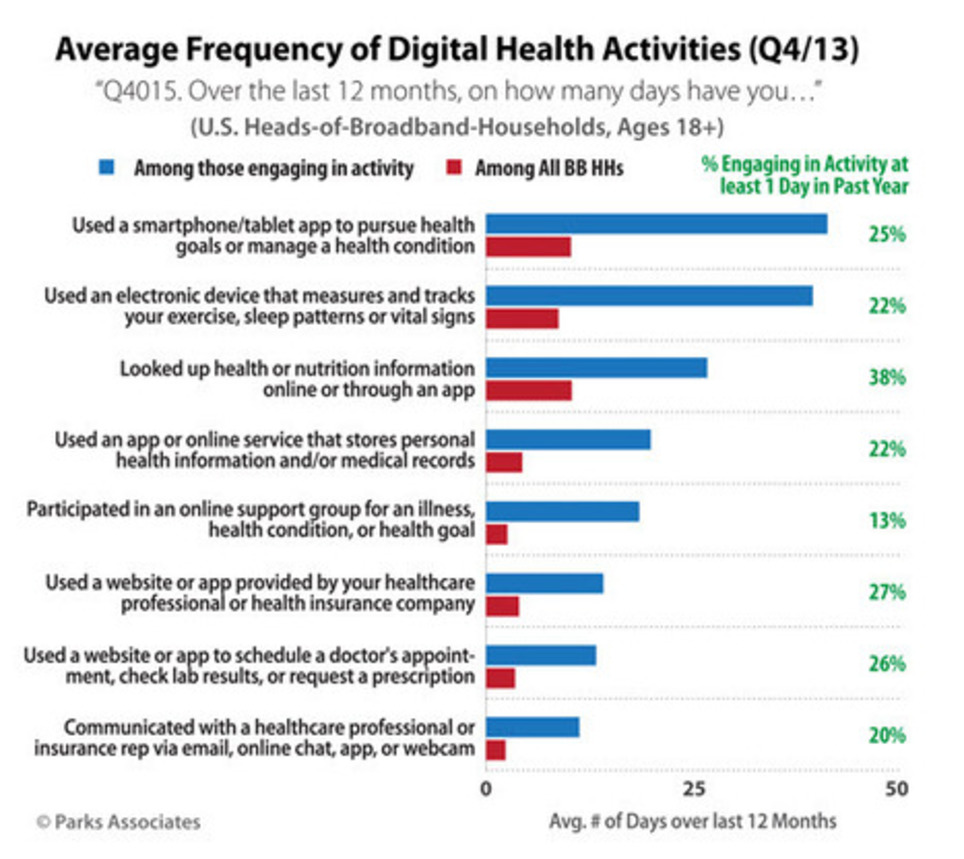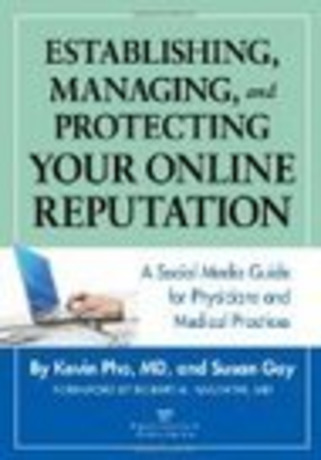A chart by Parks Associates followed up an infographic on consumer's use of digital health tools this week with a chart showing how frequently they used them in the past year.
As the use of digital health tools continues to become common practice in people’s lives, it’s always useful to quantify that. An infographic released this week(displayed below) showed that 60 percent of households have some sort of digital health device — such as a digital scale or glucometer. Although 25 percent used digital health apps, only 27 percent used their healthcare provider or insurer’s website. That seems like a low number to me, especially when you consider the push by payers and providers to improve patient engagement on multiple levels.
Thanks to a request from Matthew Holt of Health 2.0, market research business Parks Associates did a drill down to add more context on how frequently people look up health information online and how often they used a device to track their health patterns.
The point was to add some more color beyond the original survey’s finding that 38 percent looked up health information online or through an app. That seemed a little low considering Pew Research has said that 72 percent of Internet users looked up health information in the past year. Parks decided that the actual amount is probably higher than 38 percent but was influenced by the way the question was asked.
The graph also serves as a useful reminder that the growth of digital health in everyday life is likely to be in small steps. The most frequent use of digital health tools seems to average out at three times a month. It’s encouraging that the use of apps to manage a health condition tops the list since it demonstrates the most engagement. It’s also interesting to see the frequency of telehealth interactions with healthcare professionals.
Since Parks Associates is open to requests, I’d like to see a comparison chart next year to see how 2014 numbers stack up.
I’ve included the original infographic here. [ See also here ]



 Your new post is loading...
Your new post is loading...









Consumers' searches on line for health services.
Mind you that you're there ;-)